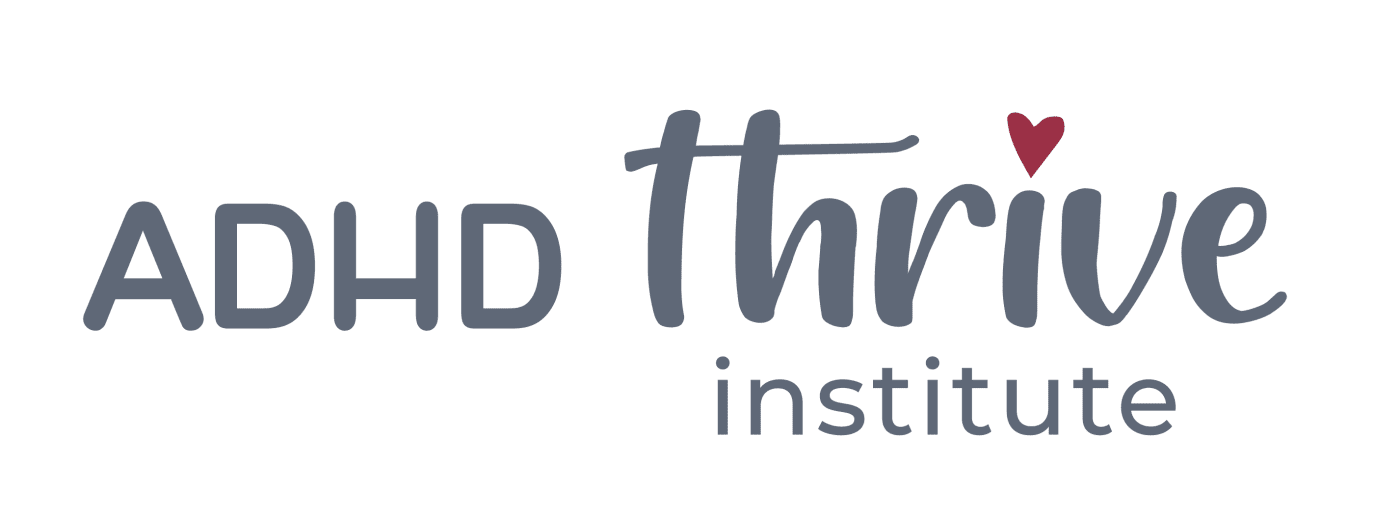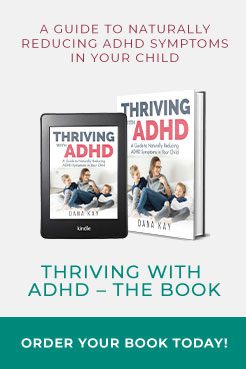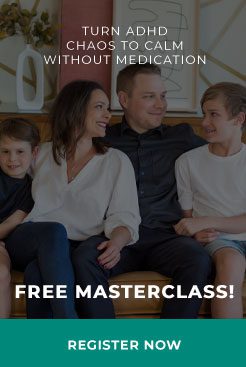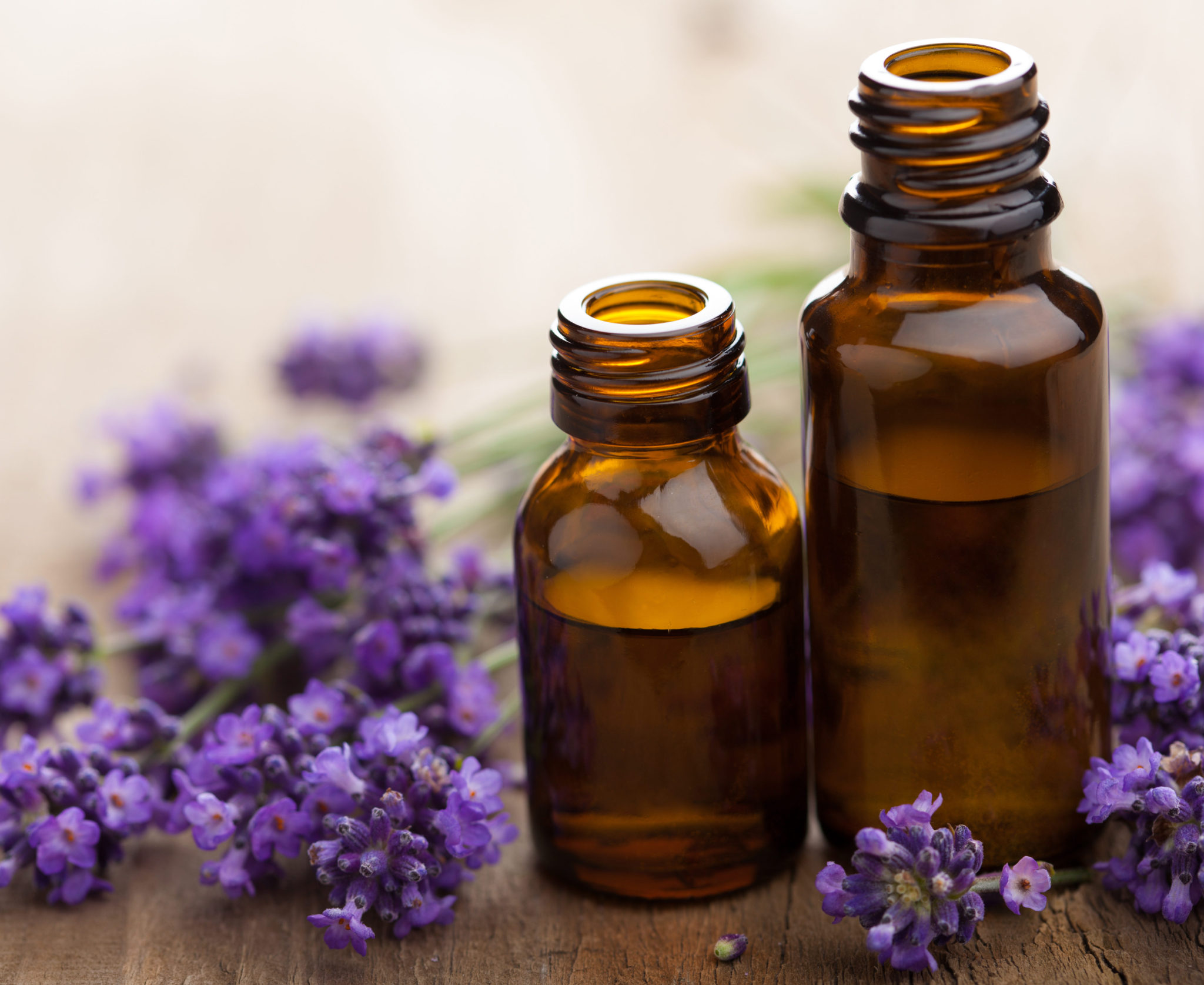If you’re raising a child with ADHD, you’ve probably felt it: the side glances in the grocery store, the comments from relatives who think your child just needs more discipline, or the well-meaning but misinformed teachers who offer “suggestions” you’ve already tried.
Families of kids with ADHD are often misunderstood, and so are the kids themselves.
That’s why ADHD Awareness Month exists.
You might be wondering: When is ADHD Awareness Month?
Every year, it’s recognized in October as a time to educate, advocate, and bring light to what ADHD really is (and what it isn’t).
In this post, we’re diving into:
- What ADHD Awareness Month is really about
- Common myths that still hold families back
- The underlying stressors of ADHD that deserve more attention
- And what you can do now to support your child more effectively
What Is ADHD Awareness Month? (And Why October?)
Every October, families, educators, and health professionals come together to shine a spotlight on one important mission: awareness of ADHD.
National ADHD Awareness Month is a nationwide effort to increase understanding, reduce stigma, and help families get access to better support and resources. It’s a time to push back against outdated ideas and speak up about what ADHD really looks like in daily life.
So why October?
October was officially recognized as ADHD Awareness Month in the early 2000s. Since then, it’s been supported by major advocacy organizations like CHADD (Children and Adults with Attention-Deficit/Hyperactivity Disorder), ADDA (Attention Deficit Disorder Association), and the ADHD Awareness Coalition. These groups work year-round to educate the public, but October is when they pull together to make the biggest impact.
You may have also seen references to ADHD Awareness Day, which can cause some confusion. While the full month is recognized for awareness activities, October 14th is often marked by some organizations as a single day of recognition. However, most efforts now focus on the entire month to allow for deeper conversations and more inclusive events.
ADHD and Autism Awareness — Are They the Same?
You may also come across content referring to ADHD and autism awareness month. To clarify, Autism Awareness Month is recognized in April, while ADHD has its own spotlight in October. That said, there’s growing awareness of how the two conditions can overlap. Many children (and adults) live with both ADHD and autism, and understanding their similarities and differences is important for accurate support.
So whether you’re a parent, a teacher, or someone newly exploring a diagnosis, ADHD Awareness Month is about making space for better understanding.
The Real Impact of ADHD: What Most People Still Don’t Understand
When most people hear the term ADHD, they think of a child who can’t sit still or focus in school, but for families living with it every day, ADHD is so much more than distraction or hyperactivity.
It affects nearly every part of a child’s life and the lives of everyone around them.
There are sleep struggles, emotional outbursts, meltdowns over mealtimes, homework battles that leave everyone in tears, the constant need to remind, repeat, redirect, and the anxiety of wondering what kind of day it will be.
This is the side of ADHD awareness that doesn’t get talked about enough.
When my son’s ADHD symptoms were at their worst, our entire family walked on eggshells all day long. We never knew when the next meltdown might occur, so we were constantly bracing ourselves for it.
ADHD doesn’t just affect the child who has the diagnosis. It affects the whole family. It can make daily routines feel chaotic and even break down trust and connection between parent and child.
Even still, families are often told things like:
“Just be more consistent.”
“Have you tried a sticker chart?”
“Maybe they’ll grow out of it.”
True awareness of ADHD should lead to compassion and more importantly, better support. The comments above are dismissive, not supportive.
Awareness should lead to holistic strategies that address the underlying stressors of ADHD symptoms, not just a prescription and a pat on the back. It should spark curiosity about how ADHD shows up in the body, not just in the classroom. It should inspire more people to learn, not judge.
Maybe most of all, it should remind families they’re not alone.
As one of our favorite understanding ADHD quotes goes:
“Kids do well if they can.” – Dr. Ross Greene

And when they can’t, it’s our job to figure out why, not punish them for it.
That’s what real ADHD and ADD awareness looks like, and that’s why this month matters.
5 ADHD Myths That Need to Go (And the Truths Parents Deserve to Hear)
Unfortunately, ADHD awareness can’t truly move forward if we’re still stuck in outdated beliefs. Every October, during ADHD Awareness Month, we hear more conversations about symptoms and struggles… but unfortunately, many of the same old myths keep showing up too.
If you’re a parent of a child with ADHD, chances are you’ve been told at least one of these. It’s time to set the record straight.
Here are five of the most common ADHD myths and facts every parent deserves to know:
Myth #1: “ADHD is just a chemical imbalance in the brain.”
Truth: ADHD symptoms are deeply connected to gut health, chronic inflammation, nutrient deficiencies, and food sensitivities. If we only focus on the brain, we’re missing the underlying stressors that are exacerbating symptoms.
Myth #2: “Just find the right medication, and everything will be fine.”
Truth: Medication can be a helpful tool. I’m not against medication. But it shouldn’t be the first port of call, not when there are other alternative solutions that can sometimes help as much or more, without the risk of side effects. Medication doesn’t solve the underlying imbalances causing, or at the very least exacerbating, ADHD symptoms. It’s like putting tape over a warning light. It may reduce the symptoms, but it doesn’t address why those symptoms are happening in the first place.
Myth #3: “Food doesn’t really affect ADHD.”
Truth: This one is especially dangerous. The Standard American Diet (SAD) is filled with ingredients that spike blood sugar, fuel inflammation, and disrupt brain function, especially in sensitive kids. When we clean up the diet and give the brain the nutrients it actually needs, we often see incredible improvements in ADHD symptoms.
Myth #4: “Picky eaters will grow out of it. Just feed them whatever they’ll eat.”
Truth: Picky eating is usually a symptom, not a phase. It’s often driven by gut inflammation, sensory sensitivities, or nutrient imbalances. When we support the body and calm the nervous system, taste preferences shift, and new foods become less stressful.
Myth #5: “Therapy and behavior charts are the best non-medication approach.”
Truth: Therapy has its place, but if we ignore the biological stress on the body, no amount of rewards or reminders will stick. When we support the nervous system, reduce inflammation, and restore key nutrients, behavior often starts to improve naturally.

If any of these myths are making you nod your head or feel seen, you’ll want to check out Episode 129 of the Soaring Child podcast, where we go deeper into these myths and others. You can also find a full breakdown of more ADHD myths in this blog post.
And remember, as we shine a light on ADHD awareness month quotes and stories this October, let’s keep telling the truth. Because kids with ADHD deserve support that works, and parents deserve more than outdated advice.
As one of our favorite ADHD awareness quotes says:
“Awareness is the first step. Action is what changes lives.”
From Awareness to Action: What Families Actually Need
Raising ADHD awareness is important, but it’s only the beginning. The next question is: what can I actually do to help my child?
This is, unfortunately, where so many families hit a wall.
ADHD Isn’t Just a Brain Disorder. It’s a Whole-Body Issue
This is one of the most important mindset shifts we teach inside our program at the ADHD Thrive Institute.
When the nervous system is dysregulated…
When the gut is inflamed…
When nutrient deficiencies or food sensitivities are present…
When sleep is broken and stress is high…
…the brain simply cannot function the way it’s meant to.
That’s why we don’t just focus on external behavior. We go deeper and explore underlying stressors inside the body.
What Does Work for ADHD? A Whole Body Approach
If you’re looking for lasting, meaningful improvement, reducing ADHD symptoms naturally starts with addressing what’s going on inside the body.
Here are a few of the most effective strategies that support kids with ADHD:
✅ Diet: Removing inflammatory foods and adding in the nutrients the brain craves can drastically improve symptoms.
✅ Functional Lab Testing to Identify Underlying Stressors & Targeted Supplements: Clean, targeted supplements based on the results of functional lab testing can be life-changing for kids with ADHD.
✅ Sleep: When the body is well-rested, regulation becomes easier, for both kids and parents.
✅ Nervous System Regulation: Tools like movement, breathing, grounding, and sensory support help kids feel safe and stay in control.
✅ Parenting Support: ADHD-specific parenting strategies rooted in connection—not punishment—lead to fewer power struggles and more peace at home.
This holistic ADHD support is what families truly need (not just medication adjustments or behavior charts). And it’s exactly what we teach inside the ADHD Thrive Method.
Want to understand the full holistic support system we teach better?
Watch our Free ADHD Masterclass and see how we help families reduce symptoms naturally by getting to the underlying stressors in the body that are driving symptoms.
So yes, let’s keep spreading ADHD awareness, but let’s also move beyond awareness and start building real change so kids with ADHD can really thrive.
How You Can Honor ADHD Awareness Month

For so many of us, ADHD Awareness Month is personal. It’s a reminder of the late nights googling symptoms. The school calls. The worry. The hope. The constant push to help your child feel understood in a world that often doesn’t get it.
So how can we truly honor ADHD Awareness Month, not just in theory, but in practice?
Here are a few meaningful ways to participate this year:
- Share your family’s story: with a friend, on social media, or even just with another parent who’s struggling. You never know who needs to hear, “You’re not alone.”
- Advocate for change. Whether it’s speaking up about better food options at school or educating teachers about how ADHD really works, your voice matters.
- Donate or support organizations that are pushing for better support, better research, and better outcomes for kids with ADHD.
- Try one new holistic strategy from our Free Reduce ADHD Symptoms Naturally Masterclass. Small changes can create big shifts.
- Educate others. The myths still exist, but you can be part of replacing them with truth.
- Finally, give yourself credit. Raising a child with ADHD takes a level of strength, creativity, and commitment most people will never fully understand. If you’re reading this post, it means you’re already going above and beyond, and that matters.
Your Next Step:
If you’re ready to see what’s possible when we stop just managing symptoms and start supporting whole body from the inside out…
👉 Watch our free ADHD Masterclass. Inside, we’ll show you how thousands of families are reducing symptoms naturally, using the same holistic framework that changed my own child’s life.
ADHD Awareness Month isn’t just about understanding ADHD. It’s about believing things can get better. And they can.
FAQs About ADHD Awareness Month
What is ADHD Awareness Month?
ADHD Awareness Month is a time dedicated to increasing awareness, education, and understanding of ADHD. It highlights the challenges families face and aims to break down myths and stigma surrounding the condition. It’s also a chance to advocate for better support and holistic solutions.
When is National ADHD Awareness Month?
National ADHD Awareness Month is recognized every October. Throughout the month, organizations like CHADD and the ADHD Awareness Coalition lead efforts to promote understanding, share ADHD facts, and support families navigating life with ADHD.
Is ADHD Awareness Month the same as Autism Awareness Month?
No, ADHD Awareness Month is in October, while Autism Awareness Month is in April. However, some families have children with both ADHD and autism, so the two awareness efforts often overlap in conversation and advocacy.
What are some common myths about ADHD?
Common ADHD myths include: “It’s just a behavior problem,” “Only boys have ADHD,” and “Medication is the only answer.” In reality, ADHD is a whole-body condition connected to gut health, nutrient deficiencies, and inflammation, and there are many ways to support it naturally.
How can I support my child with ADHD beyond medication?
Supporting ADHD naturally involves addressing underlying stressors like diet, sleep, gut health, and nervous system regulation. Supplements, functional lab testing, and connection-based parenting tools can dramatically reduce symptoms and improve your child’s overall well-being. Watch our free ADHD Masterclass to learn more.







